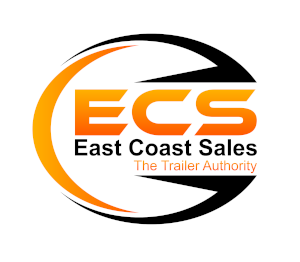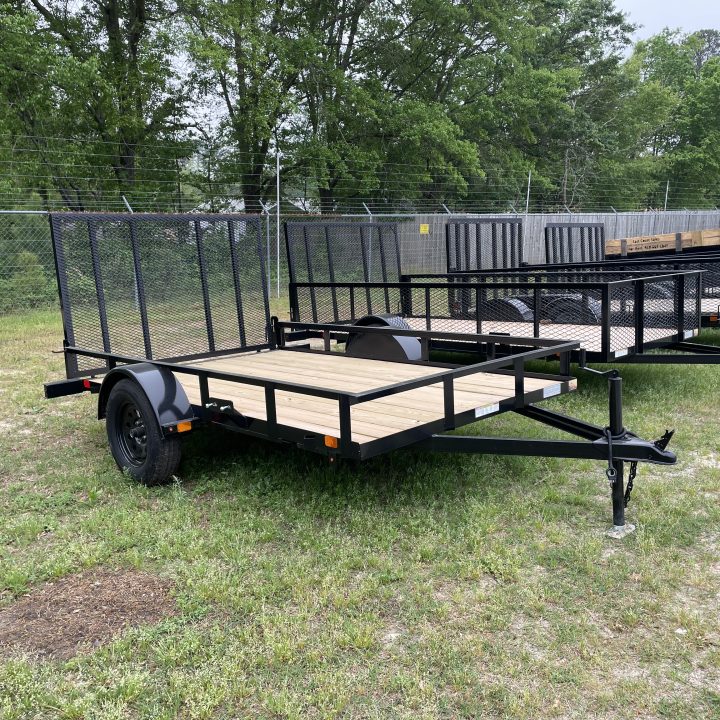buying a trailer in Raleigh, NC
When buying a trailer in Raleigh, NC, there are several important factors to consider to ensure that you get the right trailer for your needs, whether it’s for personal, business, or recreational use. Raleigh’s diverse climate, terrain, and growing infrastructure make it essential to choose a trailer that suits both your needs and local conditions. Here’s a guide to help you make an informed decision.
- Determine Your Specific Needs
Before you start looking for a trailer in Raleigh, you need to figure out exactly what you’ll be using it for. This will determine the type of trailer you should buy:
- Utility Trailers: If you need something versatile for hauling equipment, yard waste, or small furniture, utility trailers are an excellent option.
- Enclosed Trailers: For transporting valuable goods, tools, or recreational vehicles like motorcycles, an enclosed trailer provides added security and protection.
- Dump Trailers: Ideal for hauling construction debris, landscaping materials, or heavy waste, a dump trailer is perfect for contractors or people involved in home improvement projects.
- Car Haulers: If you need to transport vehicles, especially for business purposes, a car hauler is a must-have.
- Gooseneck Trailers: For hauling large loads or heavy equipment, a gooseneck trailer provides increased stability and weight capacity.
- Consider Trailer Size and Capacity
The size of your trailer should be directly related to the amount and type of cargo you plan to haul. Overloading your trailer can lead to safety issues, vehicle damage, or legal penalties. When selecting a trailer, consider the following:
- Length and Width: Trailers come in various sizes, usually ranging from 5×8 feet for smaller loads to 8×20 feet or more for larger cargo. Consider the dimensions of what you’re hauling and ensure the trailer’s size will accommodate it comfortably.
- Weight Capacity (GVWR): The Gross Vehicle Weight Rating (GVWR) indicates how much weight the trailer can safely carry. Be sure to choose a trailer with a weight capacity that matches or exceeds the weight of what you plan to load.
Tip: If you’re unsure, it’s better to overestimate the weight capacity rather than underestimate it to ensure you’re not pushing your trailer to its limits.
- Build Quality and Material
Raleigh’s diverse weather conditions—hot, humid summers and cold, wet winters—can take a toll on trailers. Choosing a durable, high-quality trailer will ensure it lasts for many years and can handle the elements. Pay attention to the materials and construction of the trailer:
- Steel vs. Aluminum: Steel trailers are more common and cost-effective but are heavier and more susceptible to rust. Aluminum trailers are lighter, more corrosion-resistant, and ideal for hauling lighter loads, but they tend to be more expensive.
- Frame Construction: Look for welded steel frames or reinforced aluminum frames for durability and better longevity.
- Coatings and Finishes: Opt for trailers with a protective coating or rust-resistant finish if you plan on using the trailer frequently or in wet or humid conditions, which is common in Raleigh.
- Suspension and Tires
A reliable suspension system and high-quality tires are crucial for ensuring a smooth, safe ride when towing a trailer. Make sure the trailer you buy has the following:
- Suspension System: A leaf spring suspension or torsion axle suspension provides better support and stability when carrying heavy loads, especially on uneven roads or during long hauls.
- Tires: Check that the tires are rated for the weight of the load you intend to carry. For long-distance travel or heavy-duty hauling, look for high-load rated tires.
Tip: Raleigh roads can range from smooth highways to bumpy suburban streets, so consider tire tread patterns that can handle the local terrain.
- Brakes and Safety Features
Safety is paramount when towing any trailer, especially if you’re hauling heavy loads. Here are a few things to keep in mind:
- Brakes: If the trailer’s weight exceeds a certain limit (usually around 3,000 lbs), it should come equipped with brakes. Make sure the brakes are properly maintained and tested. Electric brakes are common on larger trailers and can be activated from the towing vehicle.
- Tie-Down Points: Check for sturdy, well-positioned tie-down points or D-rings inside the trailer to secure your cargo. Having secure points for anchoring your load is essential for safe transport, especially for larger or heavy items.
- Reflectors and Lights: Ensure that your trailer has reflective tape and fully functioning tail lights, brake lights, and turn signals for visibility, especially during Raleigh’s rainy seasons or at night.
- Ease of Loading and Unloading
The loading and unloading process should be smooth and hassle-free, so consider these aspects:
- Ramp Design: If you’re planning to load and unload vehicles or large equipment, choose a trailer with an easy-to-use ramp or a low deck height for better access.
- Gate Style: Trailers may have rear gates, ramp doors, or barn-style doors. Consider the type of cargo you’ll be moving to determine the most convenient gate design.
Tip: If you’re a landscaper or contractor in Raleigh, a dump trailer or tilting trailer can simplify unloading heavy materials like gravel, soil, or debris.
- Warranty and Dealer Reputation
Buying a trailer is a significant investment, so it’s essential to choose a trusted dealer who can offer good customer support and warranty options.
- Warranty: Look for trailers that come with a manufacturer’s warranty. This can give you peace of mind that you’re covered for any potential issues with construction or defects.
- Dealer Reputation: Check online reviews, visit local dealers, and ask for recommendations from people in the Raleigh area who have experience with trailers. Reputable dealers will provide solid after-sale support, including service and repairs.
- Legal Requirements in North Carolina
In Raleigh and across North Carolina, there are specific registration and licensing requirements for trailers, depending on their weight and intended use:
- Registration: All trailers in NC must be registered with the Department of Motor Vehicles (DMV) if they weigh over 2,000 lbs.
- Title: If the trailer is purchased from a dealer, you will typically receive a title. However, if it’s a used trailer, ensure you complete the title transfer properly at the DMV.
- Towing Regulations: Make sure you’re familiar with North Carolina’s towing laws, such as brake requirements and vehicle towing capacity.
Final Thoughts: Finding the Right Trailer in Raleigh, NC
Choosing the right trailer for your needs in Raleigh requires some careful consideration, from determining your load capacity and trailer size to factoring in durability and safety features. Whether you need a utility trailer, dump trailer, or enclosed trailer, doing research on the local terrain and understanding your specific hauling needs will help guide your decision.
By shopping around at trusted local dealerships, asking for recommendations, and considering all the necessary features, you’ll be well on your way to purchasing a trailer that will serve you for years to come.
When you need the very best trailer and only want 5 star customer service come visit us at East Coast Trailer Sales. We are the triangle’s premier trail sales specialist. We can help you select the perfect trailer for your needs and get you on the road quickly. To learn more visit us online at https://www.eastcoastsales.com/ or check out our social media at https://www.facebook.com/eastcoastsalesraleigh . To browse our inventory, please visit https://www.eastcoastsales.com/inventory/ .

